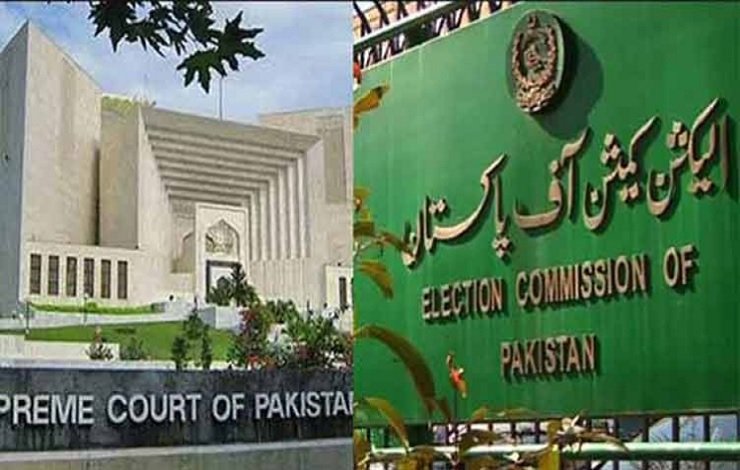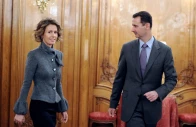ECP submits notification on election date to SC

A day after it agreed to hold general elections in the country on February 8, the Election Commission of Pakistan (ECP) on Friday submitted a notification in the Supreme Court pertaining to the polls date — which has been “set in stone”.
“… the Election Commission of Pakistan in exercise of its powers under Article 57(1) of the Elections Act and all other powers enabling it in that behalf, hereby announces February 8, 2024 as poll date for the general elections,” the notification, a copy of which is available to Dawn.com, reads.
After months of anticipation and uncertainty, the electoral body and President Dr Arif Alvi agreed on the date for elections yesterday. The development came after Chief Election Commissioner Sikandar Sultan Raja visited the Presidency on orders of the apex court, which had taken up pleas regarding elections.
During the hearing, the ECP had proposed Feb 11 as the date for polls but it was asked by the SC to approach the president for consultations. It had also instructed the commission to settle the matter of appointing the election date and inform the court.
Today, Attorney General for Pakistan (AGP) Mansoor Usman Awan submitted the electoral body’s election notification — dated Nov 3 court — to the three-member bench comprising Chief Justice of Pakistan (CJP) Qazi Faez Isa, Justice Athar Minallah and Justice Amin-ud-Din Khan.
After the AGP read out the ECP notification in court, the top judge asked if everyone was happy now. “All the respondents have given their approval,” he noted.
Subsequently, Justice Isa dictated the order of the proceedings. He said the letter President Alvi had written to the ECP earlier on September 13 wherein he had advised the commission to take guidance from the judiciary regarding polls.
“According to the law and Constitution, the Supreme Court has no role in setting a date for election,” the CJP said, adding that it was surprising that the president had suggested taking guidance on the matter from court.
“The president could have taken guidance from Article 186 of the Constitution,” he continued. “Constitutional offices like the ECP and President of Pakistan should do what the Constitution says,” Justice Isa said, highlighting that following the Constitution was not an option.
He went on to say that the matter between the ECP and president was “unnecessarily brought to court”.
The top judge also noted that the country was put through anxiety by not giving an election date. “There were also fears that elections won’t take place at all,” he said.
Justice Isa further stated court should not adopt the role of institutions, adding that the SC only facilitated the ECP and president in reaching a conclusion.
He stressed that the higher the post was the greater the responsibility is and both the president and ECP were responsible for implementing the Constitution.
“It is now time that we not just follow the Constitution but also look at the country’s constitutional history,” Justice Isa said, lamenting that the country’s institutions and people had to pay for the consequences when the Constitution was violated.
Without naming the PTI chief, Justice Isa said that by dissolving the National Assembly following the no-confidence vote, Imran Khan had created a constitutional crisis.
He also recalled that a judge had previously suggested the president be tried under Article 6 (treason) of the Constitution. “It is strange that the president used powers that he was not entitled to.”
Concluding the order, Justice Isa said the people of Pakistan deserved elections.
Road to elections
The ECP had earlier ruled out elections citing the need for fresh delimitation of constituencies.
Since the National Assembly was dissolved three days before the end of its constitutional term, Article 224 of the Constitution mandates that elections be held within 90 days of the dissolution of the assembly by November 7.
But at the same time, Section 17(2) of the Elections Act states that “the commission shall delimit constituencies after every census is officially published.”
Last month, the commission announced that elections would be held in January 2024 but stopped short of announcing a date, drawing criticism from a number of activists and political parties.
Subsequently, petitions were filed in the SC seeking timely polls. The pleas included one moved by the PTI, which had been returned on September 15 with objections. Another one had been filed by the SCBA in August, which sought directives to the ECP to announce polls within the 90-day time period mandated by the Constitution. The case was taken up on Oct 23.



